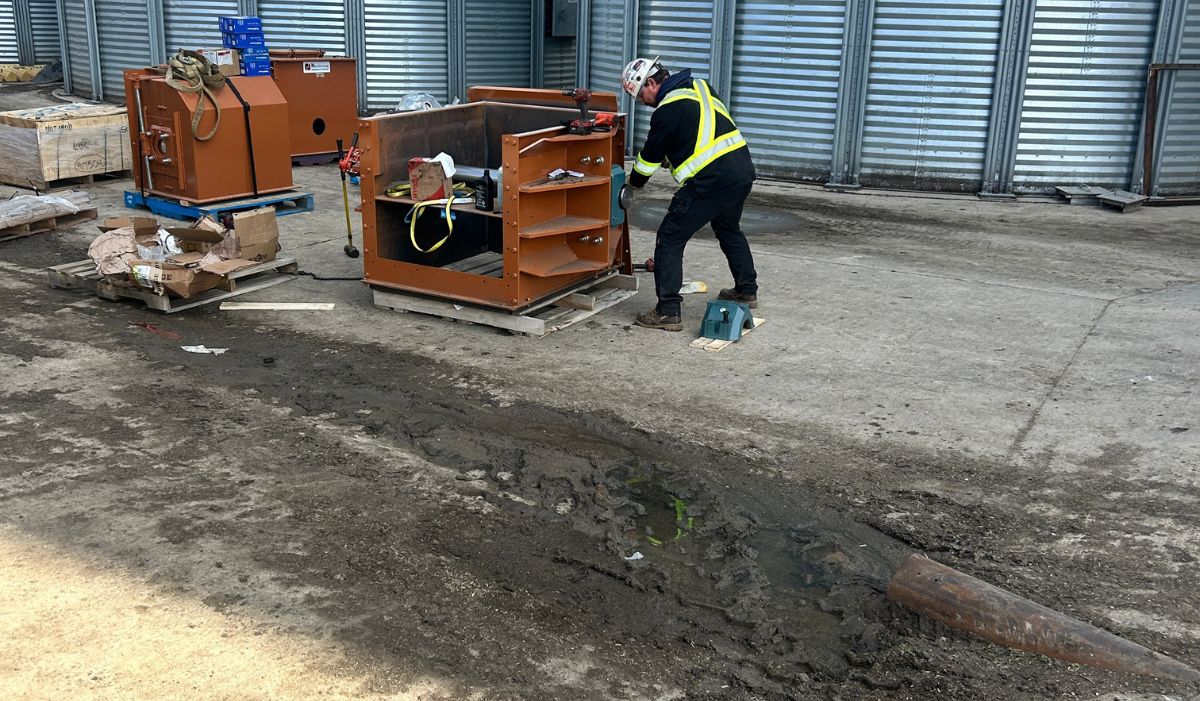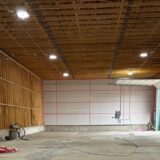The Rising Role of Modular Construction in Commercial and Industrial Projects
Introduction
In today’s fast-paced construction industry, timelines, costs, and labour availability have become deciding factors in how projects are delivered. One approach steadily gaining traction across Canada — including Saskatchewan — is modular construction.
This innovative building method is transforming how contractors, fabricators, and engineers approach commercial and industrial projects by offering faster timelines, better quality control, and reduced on-site disruptions.
What Is Modular Construction?
Modular construction involves assembling sections or “modules” of a building in a controlled factory setting before transporting them to the site for installation.
Each module is built with precision engineering and can include pre-installed plumbing, electrical wiring, insulation, and even finishing details. Once complete, the modules are transported and connected on-site to form a fully functional structure.
Unlike traditional construction, where every stage happens on-site, modular construction allows simultaneous site preparation and off-site fabrication, leading to significant time savings.
Why Modular Construction Is Gaining Popularity
There are several reasons modular construction is being adopted by leading construction companies in Saskatchewan and across Canada:
1. Faster Project Completion
Since off-site module fabrication happens alongside site work, project timelines are reduced by 30–50%.
This approach is especially valuable for industrial contractors working on tight schedules or projects affected by weather delays.
2. Improved Quality and Consistency
Modules are built in a controlled environment using precise fabrication techniques.This eliminates many of the variables that affect traditional builds, such as inconsistent materials or weather damage. For projects involving steel fabrication or structural steel work, modular methods ensure greater accuracy and strength.
3. Reduced Waste and Environmental Impact
By using standardized components and efficient factory processes, modular construction reduces material waste.
It also requires fewer deliveries and generates less on-site disruption — aligning with sustainability goals many commercial and industrial clients now prioritize.
4. Labour Efficiency
With skilled tradespeople in short supply across Canada, modular construction reduces dependency on on-site labour.
Much of the work — such as welding, assembly, and drafting and design — is completed off-site by specialized teams.
Applications of Modular Construction in Commercial and Industrial Projects
Commercial Spaces
In the commercial sector, modular construction is used for office buildings, retail spaces, and hospitality projects. Prefabricated structures can be customized for layout and design flexibility, making them ideal for businesses that need fast occupancy without compromising quality.
Industrial Facilities
For industrial construction, modular methods are ideal for control rooms, maintenance workshops, and utility buildings.
They are particularly useful in mining and energy projects, where transporting materials and manpower to remote sites is costly and time-consuming.
Temporary and Permanent Installations
One of the major advantages of modular systems is flexibility — they can serve as temporary structures for site offices or as permanent installations that meet the same codes and durability standards as traditional builds.
The Role of Fabrication and Drafting in Modular Construction
Modular construction relies heavily on precise engineering.
That’s where drafting and design services and steel fabrication expertise come into play.
Before a single module is built, every detail — from structural load capacity to mechanical integration — must be carefully designed and approved.
Credence Group’s drafting and design services help ensure these modules meet exact specifications, while our steel fabrication and welding services provide the structural integrity needed for long-lasting results.
Challenges and Considerations in Modular Construction
While modular construction offers significant benefits, it also requires careful planning and coordination:
- Transportation logistics: Modules must be designed to fit safely within transport size limits.
- Site alignment: Foundations and connections need to be precise to ensure seamless installation.
- Permitting and compliance: Local building codes must be considered from the early design stage.
Working with an experienced industrial contractor in Saskatchewan who understands both the engineering and logistical requirements of modular construction ensures these challenges are managed effectively.
Why Modular Construction Works for Saskatchewan
Saskatchewan’s climate and geography make modular construction especially practical.
By fabricating modules in controlled indoor environments, contractors minimize exposure to harsh winter conditions that can delay projects.
This approach also helps regional construction companies meet growing demand while managing labour shortages in remote or rural areas.
For industries like mining, agriculture, and manufacturing, modular methods support expansion without long-term disruptions to operations — a key factor for productivity and profitability.
Future of Modular Construction in Canada
The future of modular construction in Canada looks strong.
With the increasing adoption of greenfield projects, commercial builders are turning to modular methods for faster, cleaner, and safer builds.
As technology continues to advance — especially in 3D modelling, automation, and materials engineering — the efficiency and quality of modular projects will only improve.
Conclusion
Modular construction is not just a trend — it’s a practical, forward-thinking approach that meets the modern demands of the construction industry.
For companies like Credence Group, which specialize in steel fabrication, drafting and design, and industrial construction, modular projects represent an opportunity to combine precision engineering with faster, cost-effective delivery.
Whether you’re planning a new facility, upgrading existing infrastructure, or exploring modular solutions for industrial expansion, our team can help turn your vision into a reliable, durable reality.



